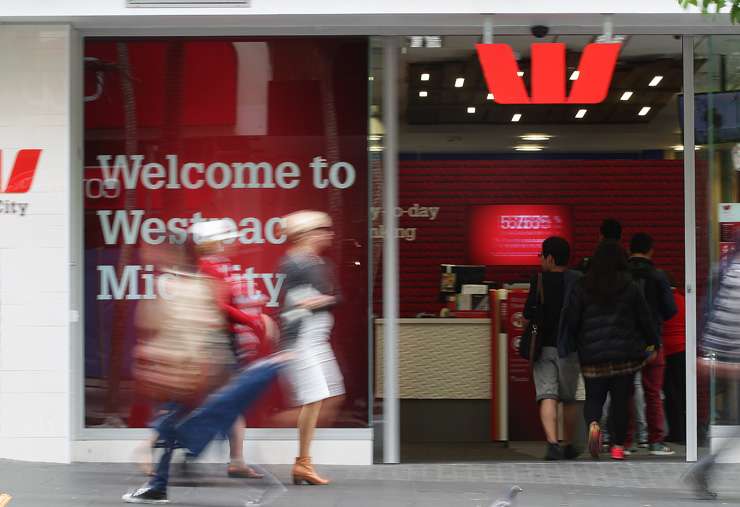After more than 40 minutes and 76 bids, a three-bedroom rental home in South Auckland sold under the hammer for just over $1 million.
The property on McDougall Street, in Manurewa East, had been billed as a bargain, with the listing ad declaring: “Must Sell Now - Vendor’s Loss, Your Gain!!!” and “The vendor’s clear instruction is ‘SELL NOW!’”
The vendor had bought the property last year for $1.105m, and while the sale price at Barfoot & Thompson’s auction last week wasn’t enough to avoid a loss, it was well above expectations.
The house had been declared on the market at $922,000 – $2000 above the 2021 CV – and ping-pong bidding between three or four buyers kept it in play until the hammer came down at $1.036m.
Start your property search
Listing agent Queenie Ling said she was surprised to see so many bidders at the auction. “It’s another investor that bought it. We had six bidders and all of them are investors,” she said.
“It could be that a lot of people think this is at the bottom, and our stock is less at the moment.”
She said close to 30 groups visited during the three-week campaign with more than 10 expressing interest in the property which she and co-agent Kasey Wayne marketed as a solid investment property, “a move-in ready three-bedroom home on a generous flat-rectangular potential site”.
Read more:
- Revealed: Where it's cheaper to buy a bigger house
- Demand finally outstripping supply: Should homeowners sell now?
- The elite suburb that's become a magnet for doctors ... and Aucklanders
There was land-banking and developer appeal in a mixed housing suburban zone with storm-water and wastewater onsite with plenty of options to “either pull down and develop” or keep the existing house, build additionally or land-bank and develop in the future, subject to council approval.
Pressure on mortgaged investors has ramped up in recent months as rising interest rates start to bite those who bought at the height of the market.
Research from Valocity, OneRoof’s data partner, shows landlords are having to reach deeper into their pockets to top up rental properties, but senior research analyst Wayne Shum says their diminishing cashflow is likely to be short-term pain because the longer-term gains will still be worth it.
The data shows the shortfall investors are having to pay has roughly trebled in the last three years with only the impact of mortgage rate rises analysed.
The research did not factor in recent interest deductibility changes to the tax rules for existing properties (new-builds are exempt) nor rates, insurances, vacancies, or maintenance costs, he says.
The research looked at the amount of annual shortfall based on mortgages with the annual property growth needed at the beginning of 2021 to compensate sitting at under 1% of the purchase price.
As mortgage rates rose in 2022 and 2023, the annual growth required rose to over 3% in Auckland and 2.7% across the country.
“Looking back in early 2021, so when the market was still going strong, when everyone was in FOMO (Fear of Missing Out), there was actually only about $5000 a year people were topping up, and then later in 2021 when everything was slowing there was about $12,000.
“Towards the end of the most recent quarter we had it at about $30,000 per rental property.”
That’s money landlords are having to plough into mortgages: “This is actual cash people have got to find”.
When rates and other costs are factored in the amount would be higher. Shum says Auckland Council, for example, has just announced a 7.7% rate increase this year.

Rise in interest rates has put pressure on mortgage holders. Photo / New Zealand Herald
“Insurance premium is another one. A lot of natural disasters are happening and insurance companies will be assessing the risk so if you have a rental property in Auckland which got flooded your insurance premium will be skyrocketing as well.
“I can’t take that into account so I’m only looking at the big picture.”
He says while some landlords plan for unexpected additional costs, others may hurt more.
“You need about 2.7% nationally, that’s the shortfall of your purchase price, so you really need that 2.7% gain in a year for you to break even – but you’re only topping up because you see a capital gain towards the end.
“In the last year we haven’t seen any capital gain really but if we look back in history the mid-2010s were well above 5% per year in capital growth, so you’re willing to give up some cash topping it up because you’re seeing capital gain at the end.”
The research shows investors on the whole don’t mind and are still getting in the market because they see growth at the end, he says.
However, a lot of people purchased during FOMO at 3% and now all of a sudden they’re at 7%, and rent has not kept pace with interest rate growth, he says.
On the other hand, if property values double every 10 or so years, investors in it for the long haul will see good gains.
“Most of the stories I hear is you buy property for the long haul, not a year and a half.”
While some investors may be leaving the market because of costs such as the interest deductibility removal and healthy homes standards, Shum thinks there could be shuffling of stock going on, with some possibly swapping a do-up property for a new-build which is low maintenance and already up to standard.
He says people who bought an investment property recently to make a quick buck, however, have probably missed the boat.
“What we saw in 2020/2021 was really once in a lifetime to see that sort of gain in such a short space of time.”
Use the search field to find out the best mortgage deals available today.



































































